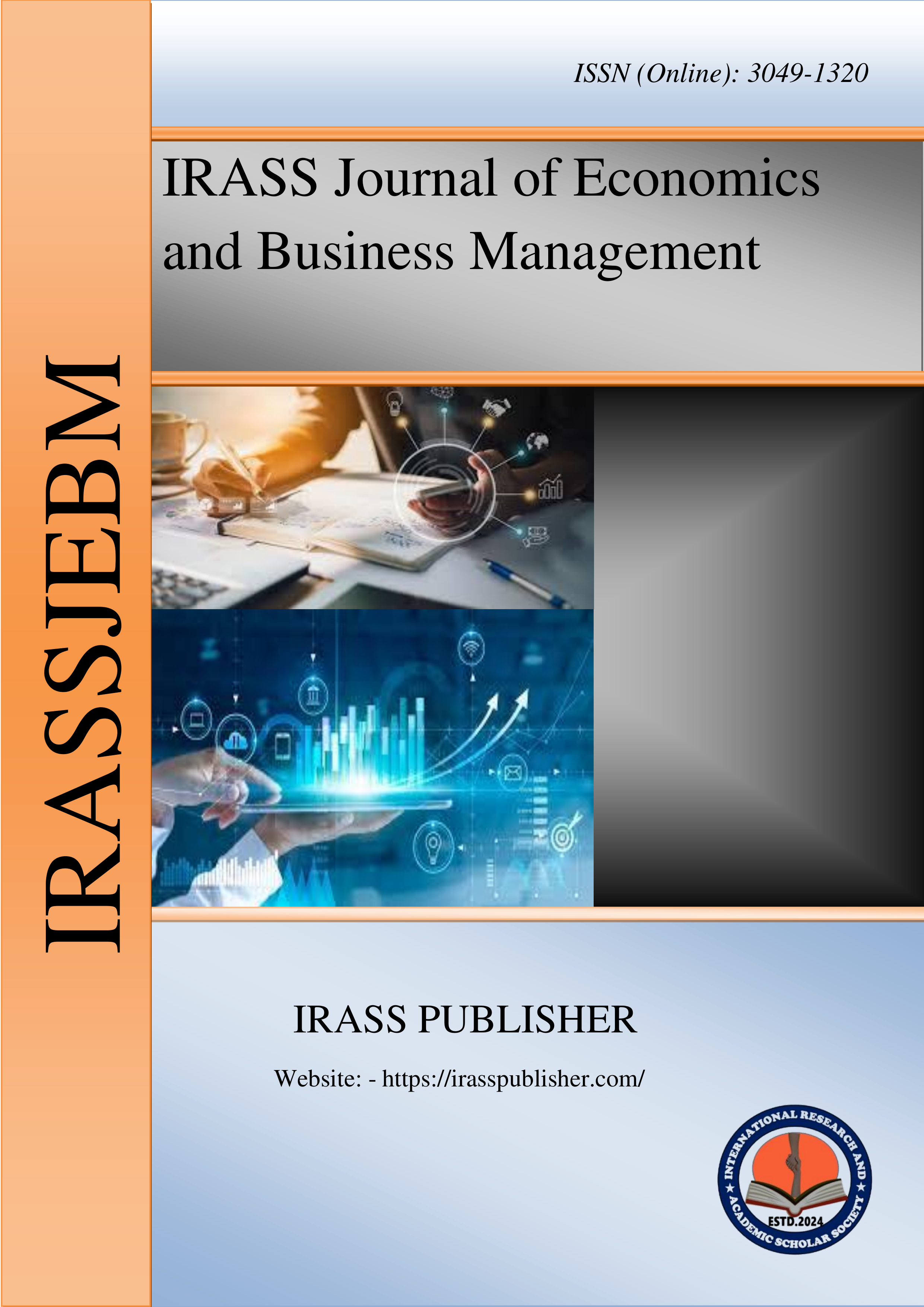Impact of Financial Inclusion on Household Consumption Expenditure in Nigeria
Sr No:
Page No:
10-18
Language:
English
Authors:
Endurance Keyamo (PhD)*
Received:
2025-01-21
Accepted:
2025-02-05
Published Date:
2025-02-10
GoogleScholar:
Click here
Abstract:
This study examined the effect of four financial inclusion variables namely
Commercial Bank Lending Rate (CBLR), Commercial Bank Advances and Loans (CBAL),
Microfinance Bank Advances and Loans (MBAL), the Number of Commercial Bank Branches
(NCBB) in Nigeria on Household Consumption expenditure in Nigeria. The estimation
technique deployed is the Autoregressive Distributed Lag (ARDL) technique and its Bounds
Test for the determination of a long run relationship between the variables. Specifically, the
Bounds Test revealed the existence of a long run relationship between the financial inclusion
variables and household consumption expenditure in Nigeria. The results further showed that in
the long-run, a unit change in MBAL will instigate a significant change in household
consumption expenditure by 0.002036 while a unit change in NCBB will cause a significant
change in household consumption expenditure by 0.145708. In the short-run, a one unit change
in CBAL and NCBB will result in a significant change of 0.000125 and 0.025867 respectively
in household consumption expenditure. The R-squared of 89% showed that the independent
variables have high influence on the dependent variable. Likewise, on the basis of the F-statistic
of 0.0000 in the model, the study concluded that the financial inclusion variables have
significant impact on household consumption expenditure in Nigeria. Among other things, the
study recommended that government and monetary authorities should ensure microfinance
banks advances and loans get to the hands of those intended as this will encourage more to enter formal banking so that they can benefit from such loans. Also efforts should be made by both government and commercial banks to increase the quantity of loans through innovative means and also increase the presence of the commercial banks in remote areas as this will go a long way in attracting people into the banking system.
Keywords:
Financial Inclusion, Household Consumption Expenditure
Journal: IRASS Journal of Economics and Business Management
ISSN(Online): 3049-1320
Publisher: IRASS Publisher
Frequency:
Monthly
Language:
English

